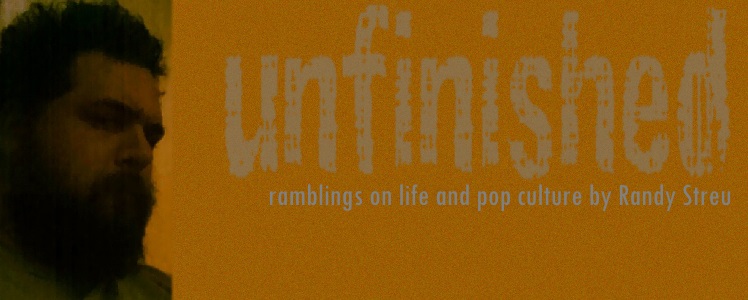Thursday, I think, I found myself under an inexplicable urge to reread Douglas Coupland's Microserfs. To clarify, it wasn't the wanting to reread Coupland which was inexplicable, but the intensity with which this urge presented itself. Enough so that I went into my former "office" (which is now more of a very badly organized storage room) and dug through piles upon piles of books I'd forgotten I had until I managed to find it.
My friend Christian first loaned me this book, while I was in college. He seemed genuinely shocked and chagrined at my confession that I'd never read it, and had taken it upon himself to remedy the situation. Since then, Coupland has become one of my favorite authors, and Microserfs, probably my favorite book.
I've discovered, in myself, that I tend to be a lot about community. Belonging, really. I think that's one of the major reasons I've become such a fan of Coupland. Microserfs, in particular, isn't really about the 90s, or about technology, or the Geek Culture -- even as it's about all those things simultaneously. Really, it's about belonging. As Dan, the book's narrator, realizes in a very short time about the new company they've all run off to start: "It's no longer about work. It's about all of us staying together."
About the time in my life that I left for college, I became a very transient person. Though I've always been very family-oriented, I no longer felt that I had roots. Or, rather, I felt that I needed to transplant those roots into a field of my own choosing. I never stayed in a single dorm room or apartment for more than a year -- and that single year was not by choice. Mostly, if I stayed anywhere for a semester it was only because it was impossible to move once school had begun. After getting married, we lived for a short time in an apartment in Jackson, MI, then moved to LA while I continued my education in film. We moved back to Michigan, occupying, not counting the short stay with my sister, no fewer than four homes. We left there shortly after our first two kids were born and moved out to Northern New York, where we've only moved one other time -- from my wife's parents' house into a house of our own.
Roots can be funny things.
However, even in the transience, there has always been within an intense desire for community: to be part of something. I was raised in a close family; family is part of who I am as a person. It is as much part of my personality as my sense of humor and dislike of pop music. Community is a part of my DNA.
In college, it was manifest in my choice of friends and interests. Like Microserfs. It's worth mentioning that most of my college friends work with computers or in some technological field or another. I, meanwhile, couldn't code a three-digit calculation in BASIC. I told myself instead that working in radio and television counted as "geek," and that I fit into my adopted cultural niche by virtue of my nerdy obsession with media. And I guess that, to some extent, I did. More importantly, though, I fit in with my friends. Books like this one were actually more than merely good reading: they were something to talk about. They were part of our cultural identity: something that helped to make us who we were as a group. Though they could talk circles around me when it came to almost anything else technological (computers, graphics, gaming), we were on a level playing field culturally, and we had the benefit of genuinely liking one another. I'll get more in-depth with my various circles of college friends at another time, but for now the main thing is the simple understanding that it was the community which was important.
Ultimately, each of us belonged to something. The things we did, the decisions we made, were all run through the filter of The Group. This is not to say The Group had any type of veto power; it was enough to know that they cared about those decisions.
Community is not about place any longer. For me, and many others of my generation, it never has been. I'm among the first of the Internet generations: I grew up with the ability to connect with those outside my physical circle of influence, thanks to a simple BBS called Prodigy. My college life was defined by this same ability, but on a much grander scale: BBS sites, chatrooms, websites(!), internet gaming. We found we could keep track of our own little Group, even as members moved on to greener pastures, thanks to a BBS set up by some within our circle (MIB: Messages In Black). The circle was widened, and at the same time, brought closer.
Chatrooms and BBS became blogs and forums. Blogs and forums became Social Networking. All of it driven by the common human thread: the intrinsic need to be a part of something.
Microserfs is humanity on the brink of understanding the truest definitions of community. Even as it is a story about one man's search for family, it is also about his dealing with a world slowly going Global Village. In a story that takes place in 1993-1994, it's worth noting that one of the book's characters, Abe, remains a vital part of Dan's community, even though the two live hours away from one another, and communicate mostly via email.
Prophesies of the decade to come, perhaps.


No comments:
Post a Comment